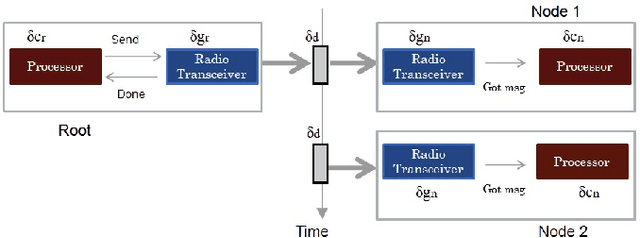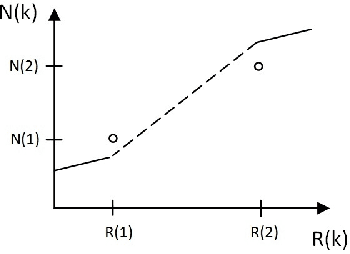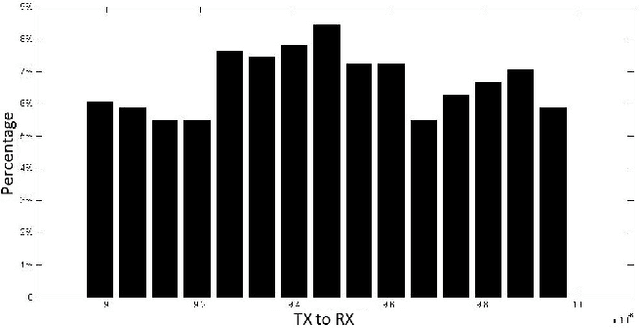Joao P Hespanha
Realizing Uncertainty-Aware Timing Stack in Embedded Operating System
Feb 03, 2018



Abstract:Time awareness is critical to a broad range of emerging applications -- in Cyber-Physical Systems and Internet of Things -- running on commodity platforms and operating systems. Traditionally, time is synchronized across devices through a best-effort background service whose performance is neither observable nor controllable, thus consuming system resources independently of application needs while not allowing the applications and OS services to adapt to changes in uncertainty in system time. We advocate for rethinking how time is managed in a system stack. In this paper, we propose a new clock model that characterizes various sources of timing uncertainties in true time. We then present a Kalman filter based time synchronization protocol that adapts to the uncertainties exposed by the clock model. Our realization of a uncertainty-aware clock model and synchronization protocol is based on a standard embedded Linux platform.
 Add to Chrome
Add to Chrome Add to Firefox
Add to Firefox Add to Edge
Add to Edge